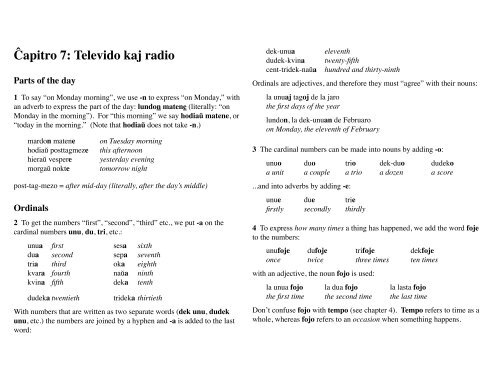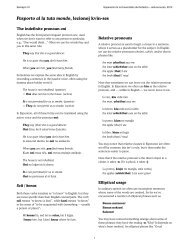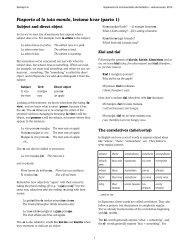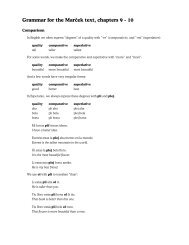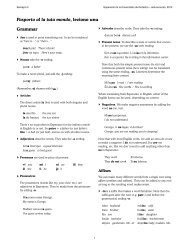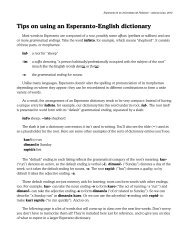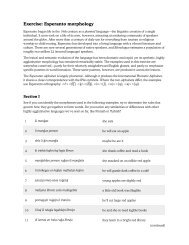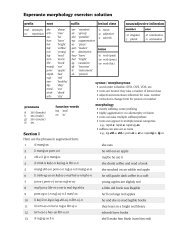The alphabet and pronunciation - Lodestone
The alphabet and pronunciation - Lodestone
The alphabet and pronunciation - Lodestone
- No tags were found...
You also want an ePaper? Increase the reach of your titles
YUMPU automatically turns print PDFs into web optimized ePapers that Google loves.
!apitro 7: Televido kaj radioParts of the day1 To say “on Monday morning”, we use -n to express “on Monday,” withan adverb to express the part of the day: lundon matene (literally: “onMonday in the morning”). For “this morning” we say hodia" matene, or“today in the morning.” (Note that hodia" does not take -n.)# mardon matene! on Tuesday morning! hodia" posttagmeze! this afternoon! hiera" vespere# yesterday evening! morga" nokte! tomorrow nightpost-tag-mezo = after mid-day (literally, after the day’s middle)Ordinals2 To get the numbers “first”, “second”, “third” etc., we put -a on thecardinal numbers unu, du, tri, etc.:# unua! first# sesa! sixth! dua! second! sepa! seventh! tria! third! oka! eighth! kvara! fourth! na"a# ninth! kvina! fifth! deka! tenth! dudeka!twentieth! trideka!thirtiethWith numbers that are written as two separate words (dek unu, dudekunu, etc.) the numbers are joined by a hyphen <strong>and</strong> -a is added to the lastword:! dek-unua! eleventh! dudek-kvina! twenty-fifth! cent-tridek-na"a! hundred <strong>and</strong> thirty-ninthOrdinals are adjectives, <strong>and</strong> therefore they must “agree” with their nouns:! la unuaj tagoj de la jaro! the first days of the year! lundon, la dek-unuan de Februaro! on Monday, the eleventh of February3 <strong>The</strong> cardinal numbers can be made into nouns by adding -o:! unuo! duo! trio! dek-duo# dudeko# a unit! a couple! a trio! a dozen! a score...<strong>and</strong> into adverbs by adding -e:! unue! due! trie# firstly! secondly! thirdly4 To express how many times a thing has happened, we add the word fojeto the numbers:! unufoje! dufoje! trifoje! dekfoje! once! twice! three times! ten timeswith an adjective, the noun fojo is used:! la unua fojo! la dua fojo! la lasta fojo# the first time! the second time! the last timeDon’t confuse fojo with tempo (see chapter 4). Tempo refers to time as awhole, whereas fojo refers to an occasion when something happens.


